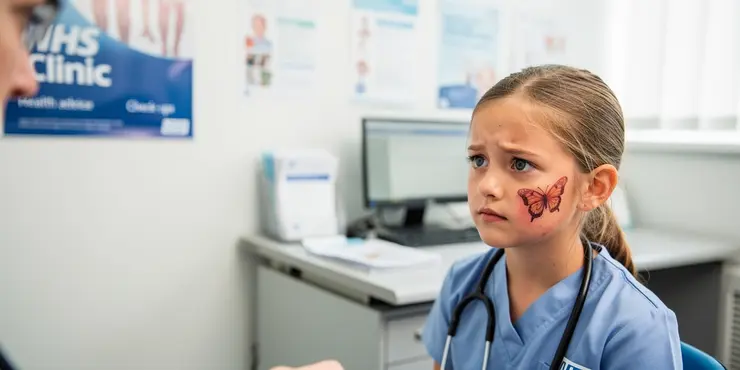
Find Help
More Items From Ergsy search
-
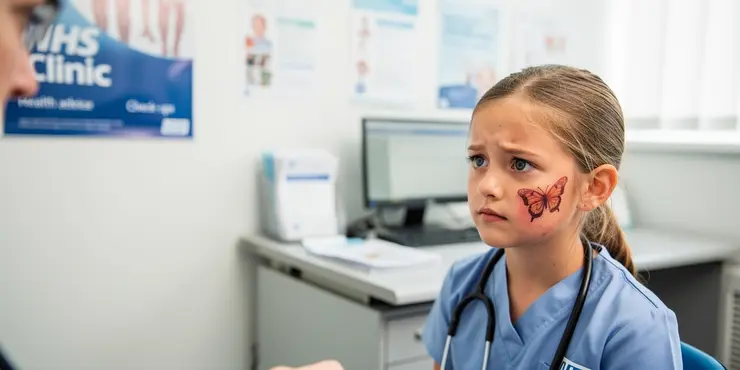
What are the common symptoms of lupus in children?
Relevance: 100%
-
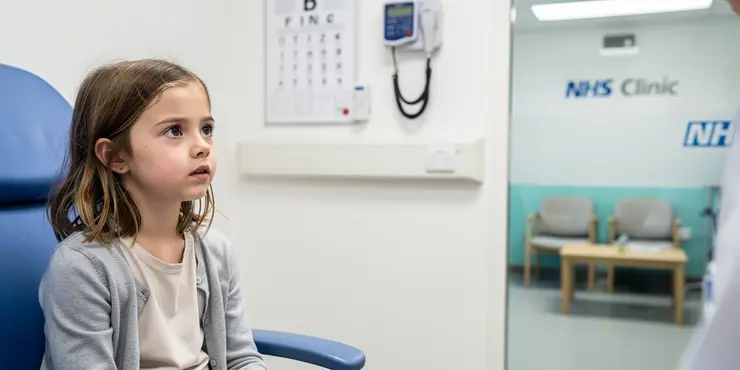
What is lupus in children?
Relevance: 93%
-
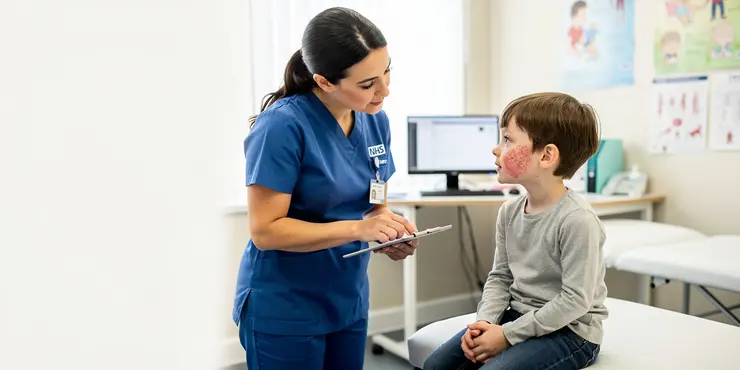
Lupus in children | NHS
Relevance: 93%
-
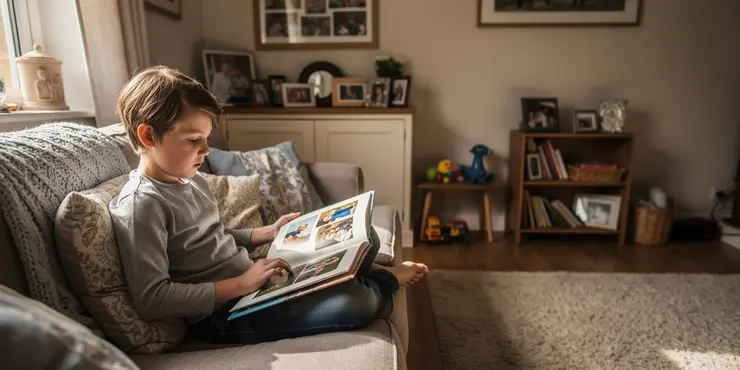
What causes lupus in children?
Relevance: 89%
-
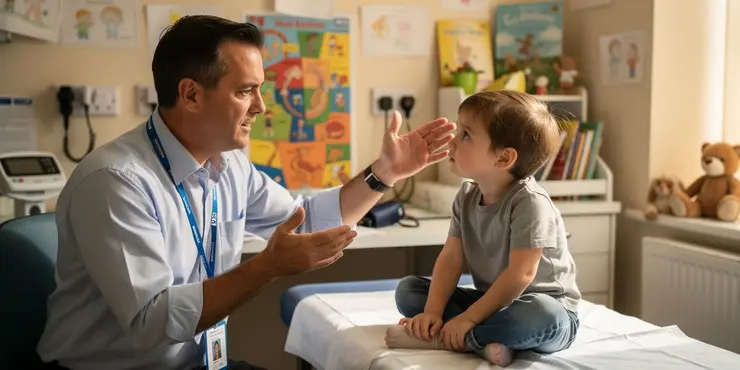
How is lupus diagnosed in children?
Relevance: 89%
-
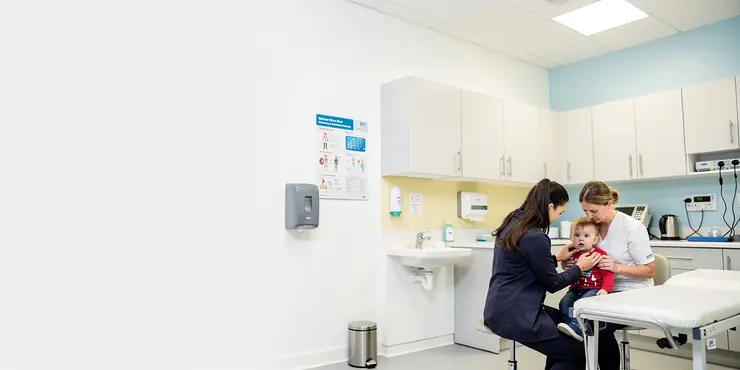
What is bronchiolitis in children? The symptoms, warning signs and when to seek medical help
Relevance: 34%
-
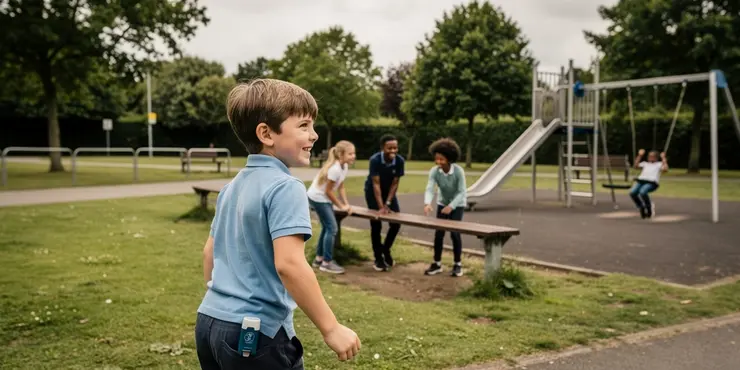
Can children outgrow asthma?
Relevance: 31%
-
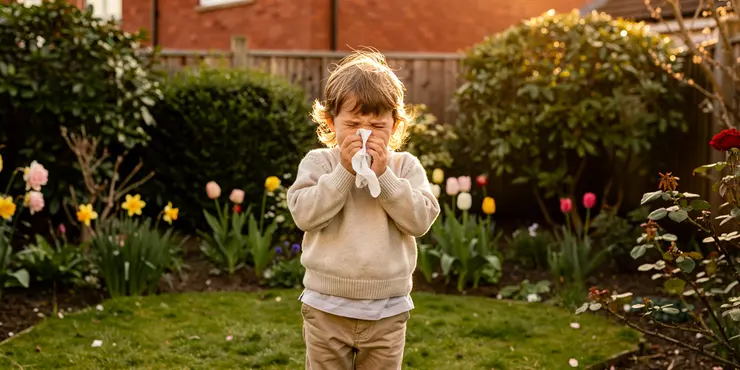
Can children develop hay fever?
Relevance: 30%
-
Can children develop chronic fatigue syndrome?
Relevance: 29%
-

Dyspraxia Symptoms & Signs
Relevance: 28%
-
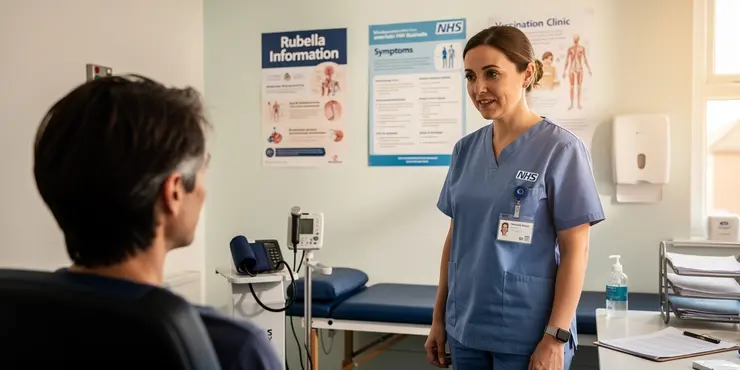
What are the symptoms of Rubella?
Relevance: 28%
-
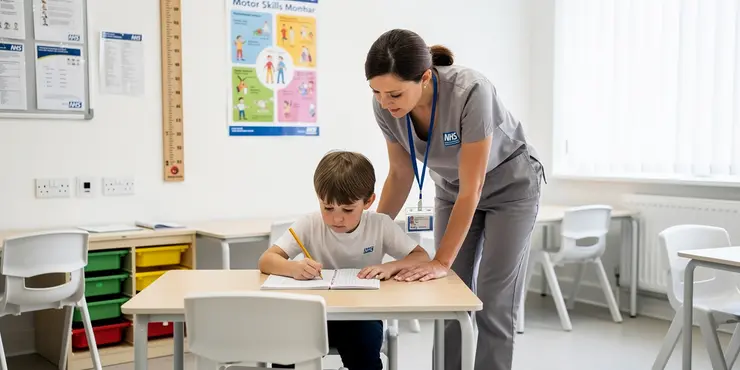
Children With Co-ordination Difficulties and Dyspraxia
Relevance: 28%
-
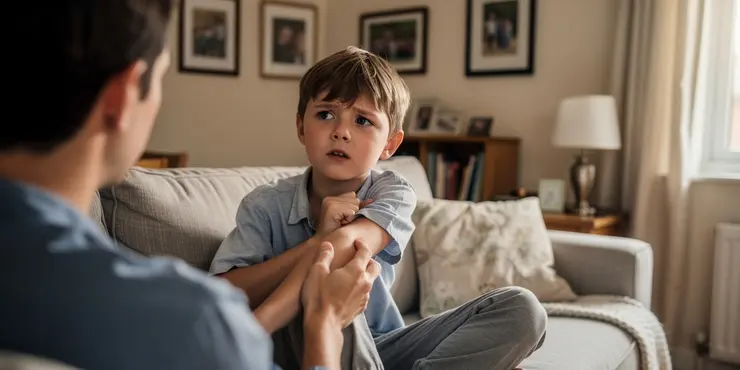
Can children get nettle rash?
Relevance: 28%
-
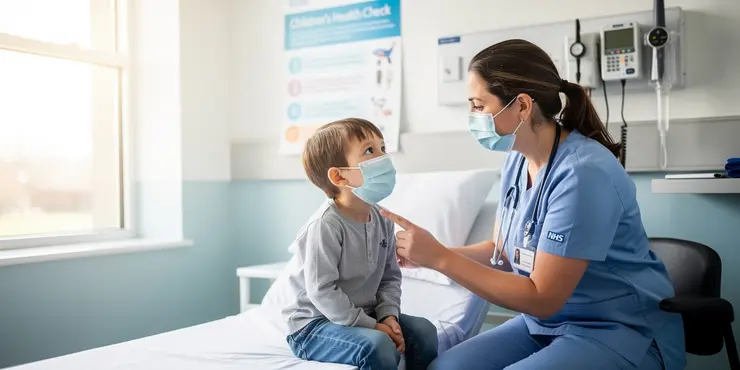
Are children more affected by new variants of COVID?
Relevance: 28%
-
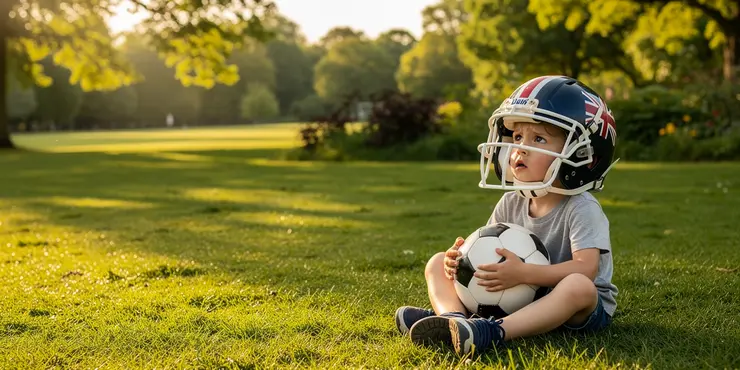
Are children more susceptible to concussions than adults?
Relevance: 28%
-
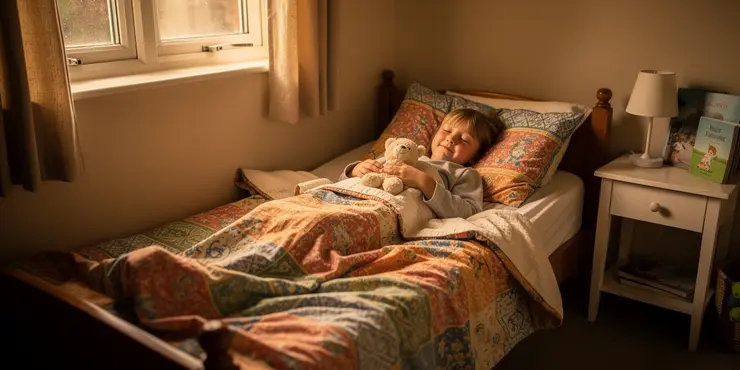
Can children have sleep apnea?
Relevance: 28%
-
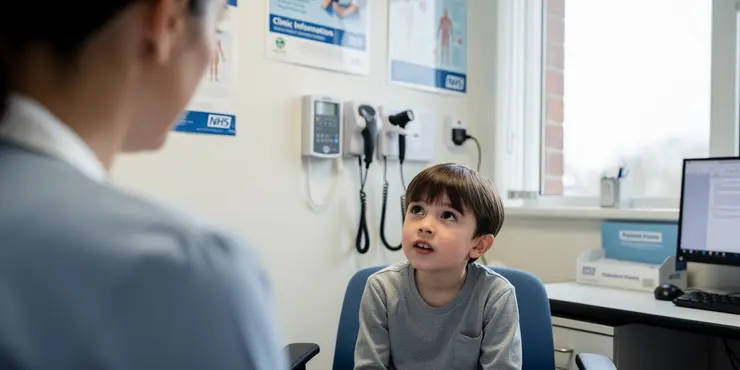
Can children develop Crohn's disease?
Relevance: 28%
-
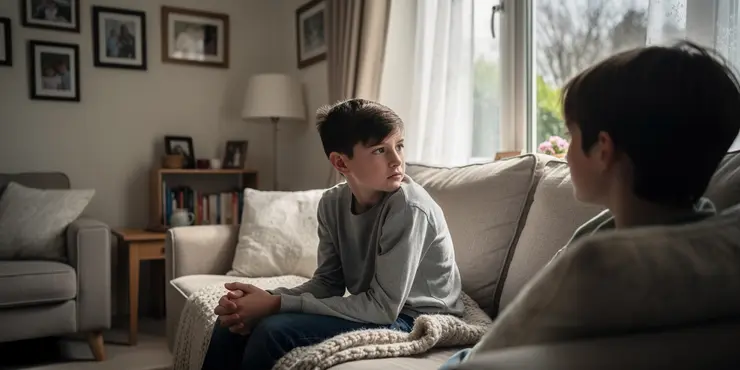
What type of anxiety do children and teenagers experience?
Relevance: 27%
-
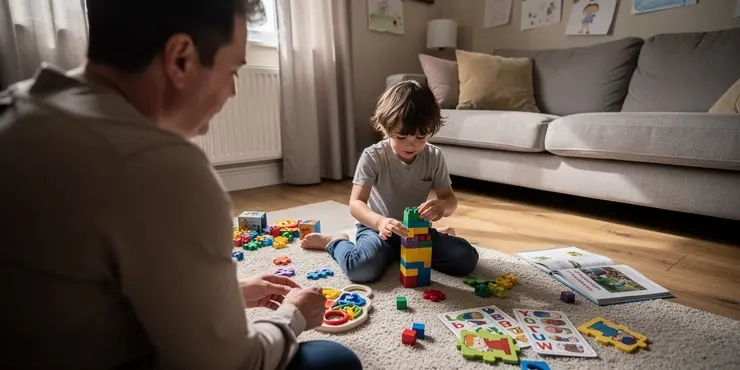
Dyspraxia Children: How to Help
Relevance: 27%
-
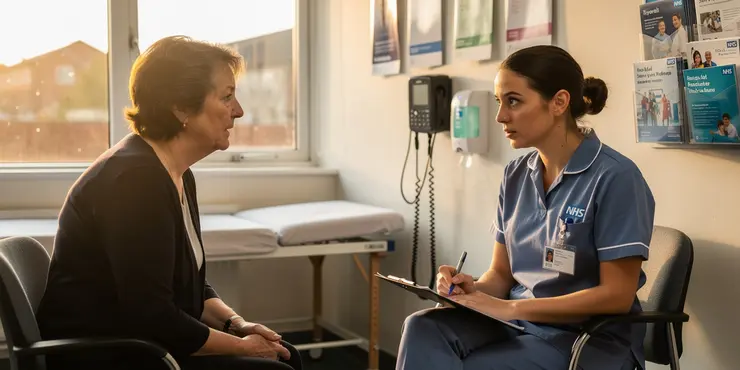
What are the symptoms of norovirus?
Relevance: 27%
-
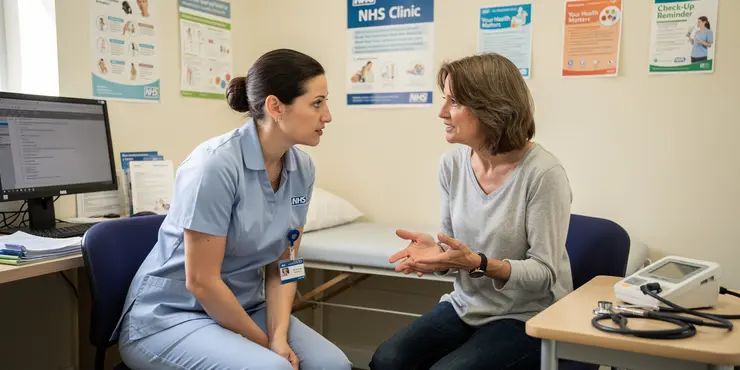
What are the symptoms of H3N2 flu?
Relevance: 27%
-
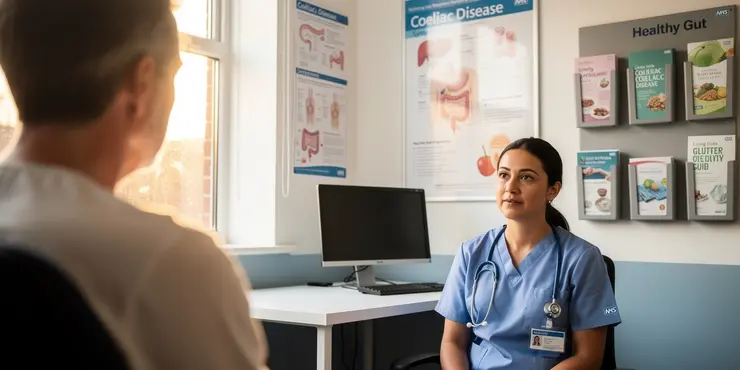
Symptoms of coeliac disease
Relevance: 27%
-
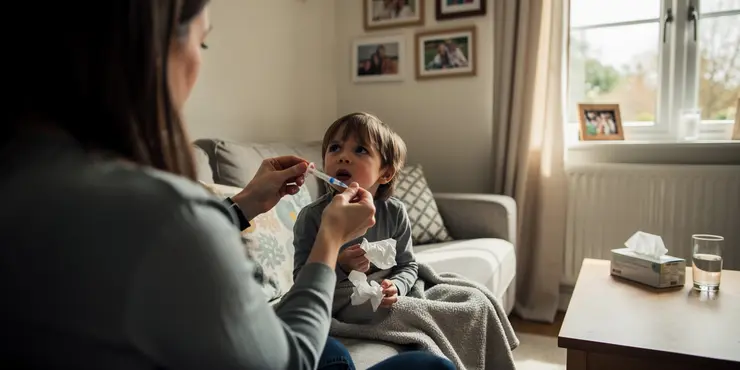
Can children take the same cold medications as adults?
Relevance: 27%
-
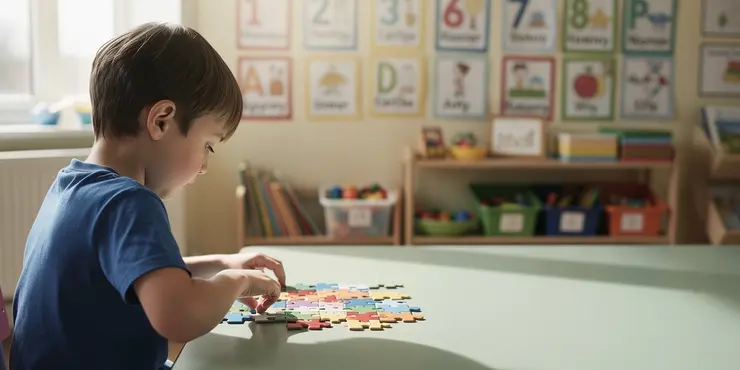
Who are SEND children?
Relevance: 27%
-
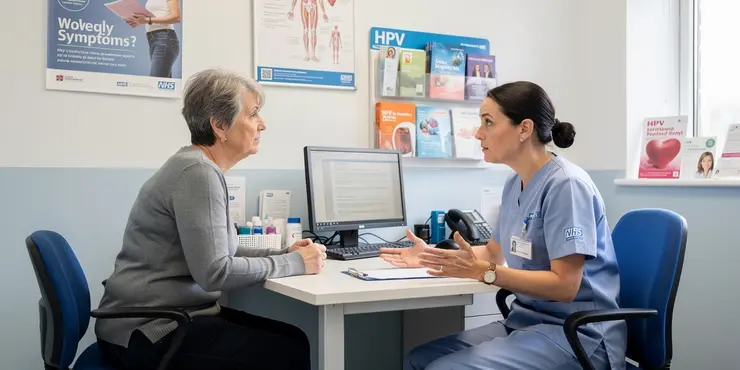
Are there symptoms of an HPV infection?
Relevance: 27%
-
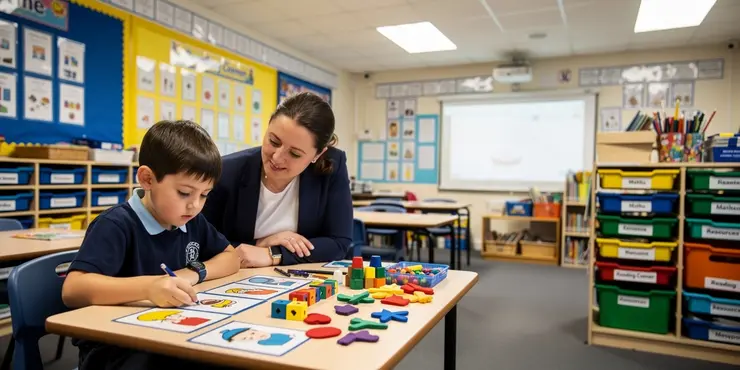
What are SEND children?
Relevance: 27%
-
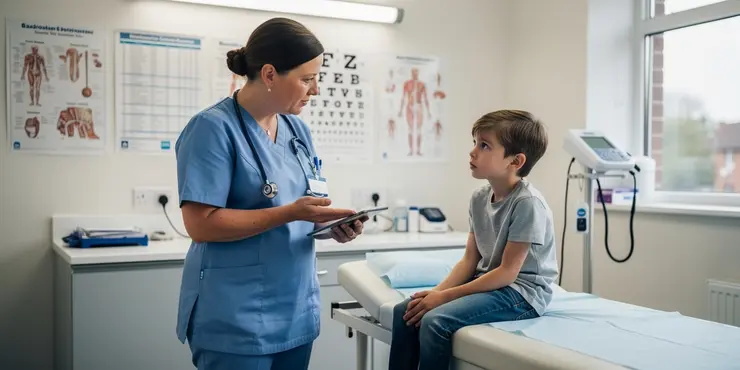
Is Baxdrostat suitable for children?
Relevance: 27%
-
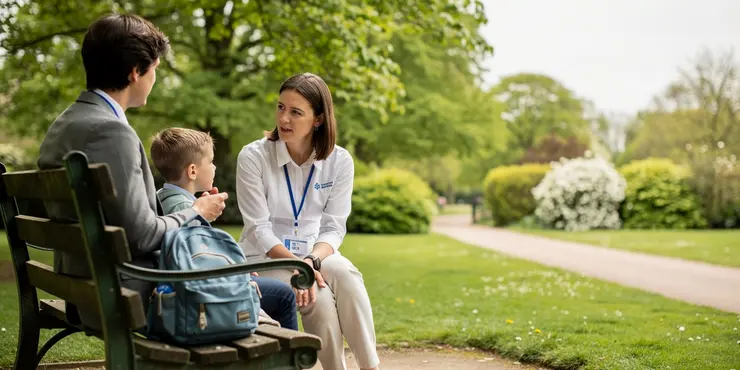
Understanding Mental Health in Children
Relevance: 27%
-
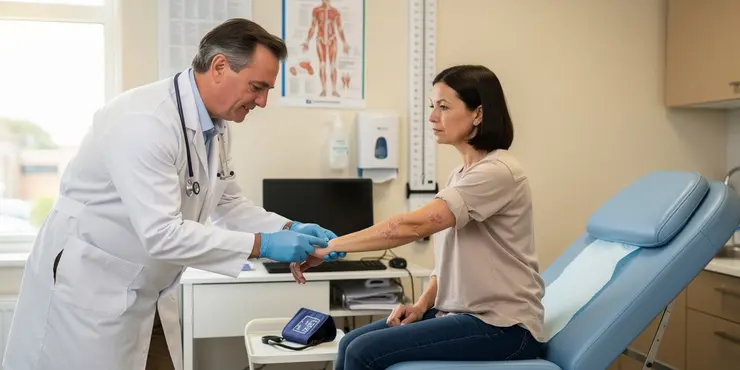
What are the symptoms of scabies?
Relevance: 27%
-
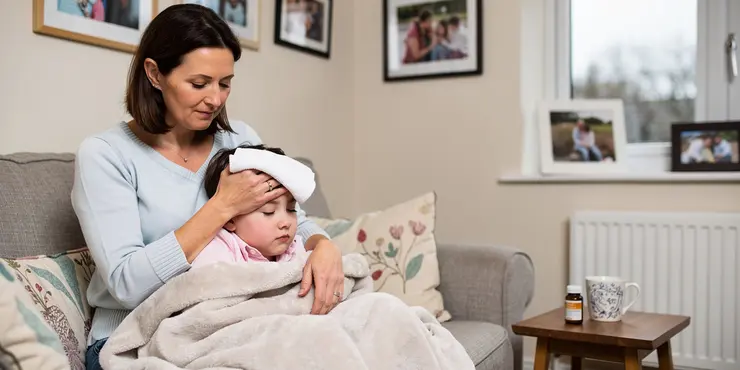
Which medication should be avoided for children with fevers?
Relevance: 27%
-
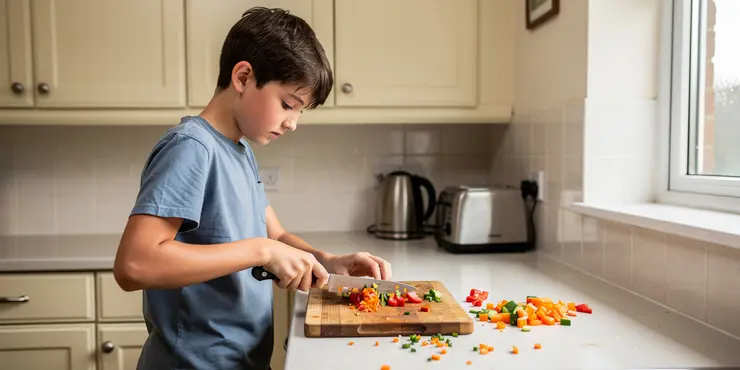
Dyspraxia Symptoms & Signs
Relevance: 27%
-
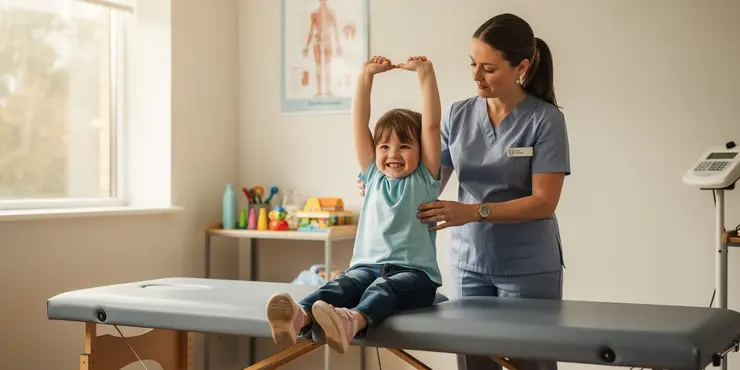
Can children benefit from chiropractic care?
Relevance: 26%
-
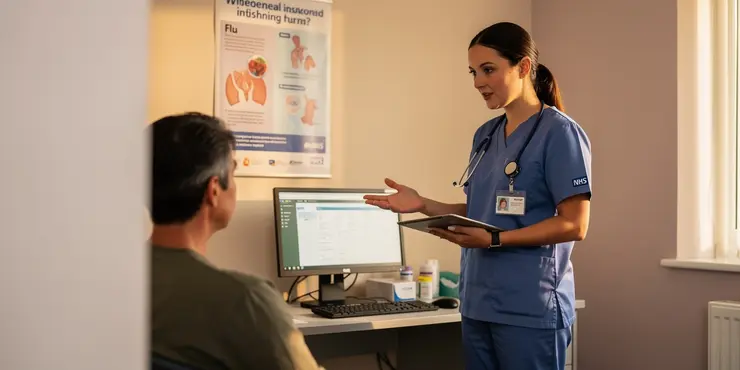
Symptoms of flu (influenza)
Relevance: 26%
-
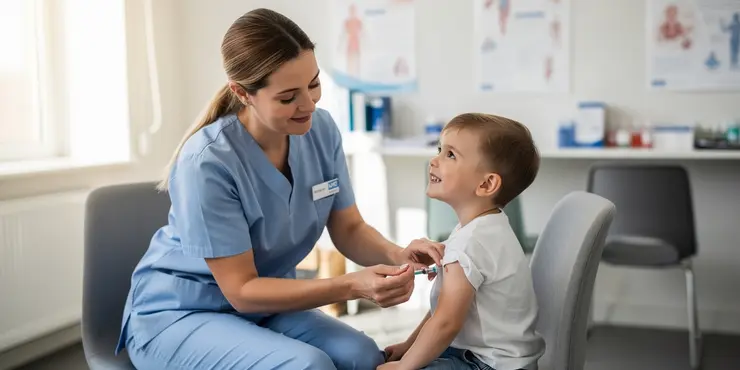
Children's Vaccination Schedule
Relevance: 26%
-
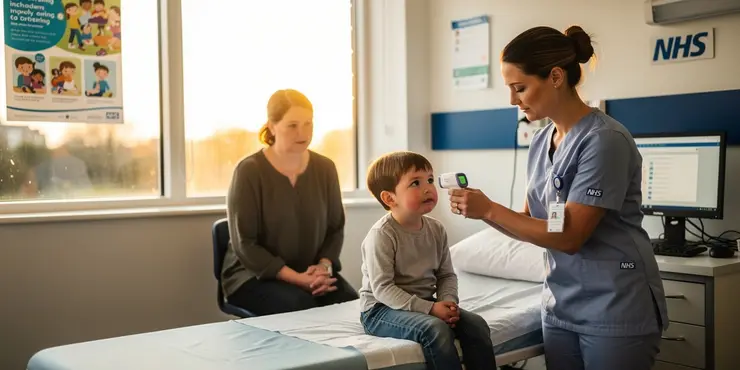
What are the symptoms of measles?
Relevance: 26%
-
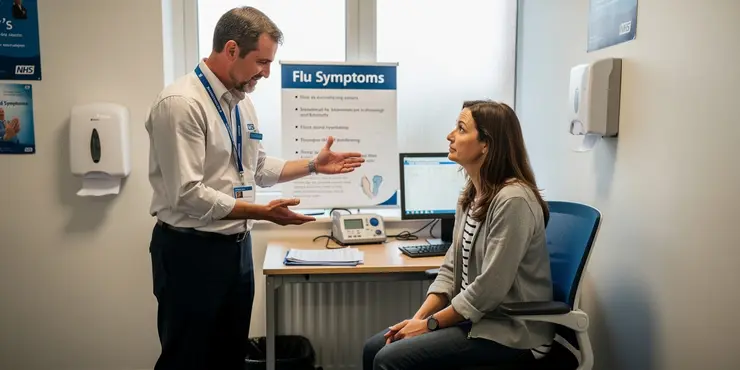
What are the symptoms of flu ?
Relevance: 26%
-
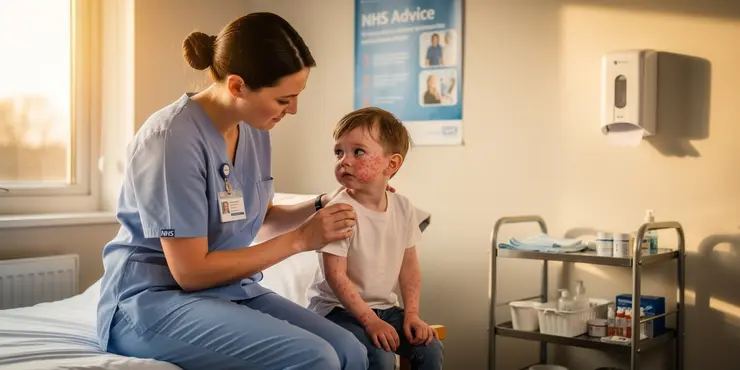
What are the symptoms of measles?
Relevance: 26%
-
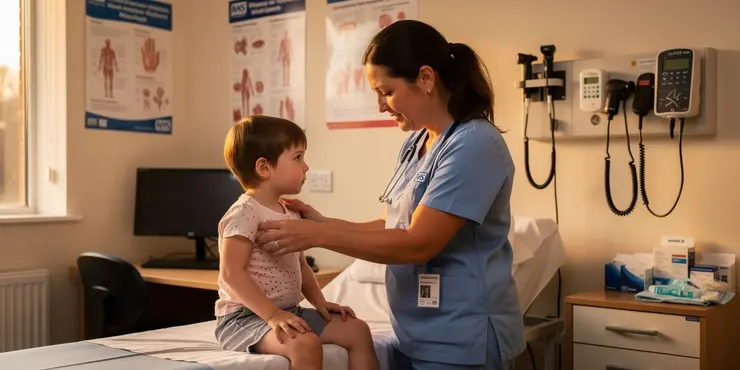
What are the symptoms of chickenpox?
Relevance: 26%
-
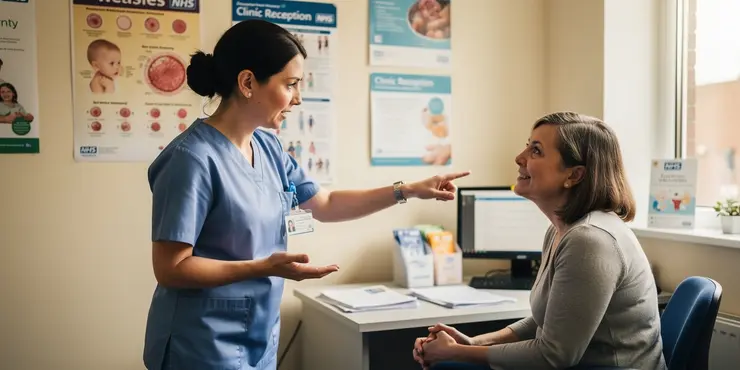
What are the symptoms of measles?
Relevance: 26%
-
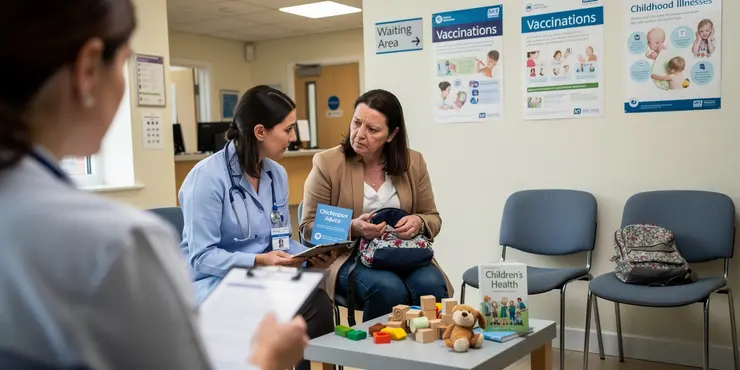
Is it safe to use aspirin to treat chickenpox symptoms?
Relevance: 26%
Common Symptoms of Lupus in Children
Lupus is an autoimmune disease where the body's immune system attacks its own tissues. Although it more commonly affects adults, children and teenagers can also be diagnosed with the condition. The symptoms may vary greatly among young patients, often making lupus difficult to diagnose.General Symptoms
Children with lupus often experience a range of general symptoms, which include persistent fatigue and tiredness that don't alleviate with rest. Many children also suffer from mild to severe fever that may persist or recur over time. Unexplained weight loss is another common symptom, which may be due to decreased appetite or gastrointestinal involvement.Musculoskeletal Symptoms
Joint pain and swelling are frequent in children suffering from lupus. This can affect multiple joints and is often accompanied by morning stiffness. While these symptoms can resemble juvenile arthritis, they might be less severe in children whose lupus is well-managed.Dermatological Symptoms
Skin-related symptoms are particularly prominent in children with lupus. The characteristic "butterfly" rash that appears across the cheeks and nose can develop. Additionally, children may develop sensitivity to sunlight, which can result in blistering or worsening of rashes after sun exposure. Other skin symptoms include discoid rashes, which are red, scaly patches of skin that can lead to scarring.Renal Symptoms
Lupus can significantly affect the kidneys, leading to lupus nephritis. This may present as swelling in the legs or blood in the urine, although these symptoms might not be immediately noticeable. Regular monitoring by healthcare professionals is essential to detect and manage kidney involvement.Neurological and Psychological Symptoms
Lupus can affect the nervous system, leading to headaches, confusion, or seizures in children. These symptoms can be distressing and challenging to manage. Additionally, the chronic nature of the disease can contribute to psychological symptoms such as anxiety or depression.Gastrointestinal Symptoms
Children with lupus may experience gastrointestinal issues such as nausea, vomiting, or abdominal pain. These symptoms can vary in severity and may be mistaken for other common childhood ailments.Conclusion
Diagnosing lupus in children can be complicated due to its varied symptoms. Early recognition and treatment are crucial for managing the condition effectively and improving the quality of life. Parents should seek prompt medical advice if they observe a combination of these symptoms in their child. Healthcare providers in the UK typically offer comprehensive care and support to manage this chronic illness in children.Common Signs of Lupus in Children
Lupus is a disease where the body attacks itself by mistake. It usually affects adults, but children and teenagers can get it too. The signs can be different for each child, making it hard to figure out they have lupus.Main Signs
Children with lupus often feel very tired and weak, even after resting. They may also have a fever that doesn’t go away or comes back. Losing weight without trying can also be a sign, which might happen because they don’t feel like eating or have tummy troubles.Joint Pain and Swelling
Kids with lupus can have sore and swollen joints. This often happens in the morning when they feel stiff. It might seem a bit like a disease called juvenile arthritis, but it’s not as bad if the lupus is treated well.Skin Problems
Skin issues are common in children with lupus. They can get a "butterfly" rash across their cheeks and nose. Sunlight can also make their skin hurt or make rashes worse, maybe even cause blisters. Some kids get red, scaly patches that can leave marks.Kidney Problems
Lupus can harm the kidneys. This might show up as swelling in their legs or blood in their pee. These signs can be hard to notice, so doctors check on their kidneys regularly.Brain and Mood Problems
Lupus can affect the brain, causing headaches, confusion, or even seizures. These can be scary and hard to handle. Also, having a long-term illness like lupus can make kids feel anxious or sad.Tummy Troubles
Children with lupus might have tummy problems like feeling sick, throwing up, or stomach aches. These can be mild or feel like other common tummy problems kids get.Conclusion
Finding out if a child has lupus is tricky because the signs are so different. It's important to notice these signs early and get help from doctors to make life better for the child. Parents should take their child to see a doctor if they notice these signs together. Doctors in the UK give lots of support and care to help children with lupus live well. For children who may struggle with reading, using pictures to represent symptoms and other supportive tools like audiobooks or read-aloud apps can be helpful.Frequently Asked Questions
What is lupus in children?
Lupus is an autoimmune disease where the body's immune system mistakenly attacks its own tissues, causing inflammation and damage. In children, it can affect various organs and systems.
What are the common symptoms of lupus in children?
Symptoms can vary but often include fatigue, joint pain and swelling, skin rashes, fever, and kidney problems. Other symptoms might include hair loss, sensitivity to sunlight, anaemia, and mouth sores.
How is a skin rash associated with lupus?
Children with lupus often develop a characteristic butterfly-shaped rash across their cheeks and nose, known as a lupus rash. Rashes can also appear on other body parts, especially after sun exposure.
Can lupus cause joint pain in children?
Yes, joint pain and swelling are common symptoms of lupus in children. The discomfort can migrate from one joint to another and is often associated with morning stiffness.
How does lupus affect children's kidneys?
Lupus can lead to kidney inflammation known as lupus nephritis. This can result in symptoms like foamy urine, swelling in the legs or feet, and high blood pressure.
Are there any blood-related symptoms in children with lupus?
Yes, children may develop conditions like anaemia, low blood platelet count, or low white blood cell count, resulting in fatigue, increased risk of infections, or bleeding issues.
What neurological symptoms might children with lupus experience?
Some children might experience headaches, confusion, memory problems, or seizures due to lupus affecting the nervous system.
Can lupus cause fever in children?
Yes, unexplained fevers are a common symptom of lupus in children, indicating an inflammatory process in the body.
How does sunlight exposure affect children with lupus?
Children with lupus may be particularly sensitive to sunlight, leading to skin rashes or triggering other lupus symptoms.
Is hair loss a symptom of lupus in children?
Hair loss can occur in children with lupus due to the immune system attacking hair follicles or as a side effect of medication used to treat lupus.
What gastrointestinal symptoms could lupus cause in children?
Some children may experience abdominal pain, nausea, or changes in appetite due to lupus involvement in the digestive tract.
Can lupus cause mood changes in children?
Yes, lupus can affect mental health, leading to mood swings, anxiety, or depression in some children.
How is fatigue related to lupus in children?
Chronic fatigue is a common symptom. It can be debilitating and often does not improve with rest, affecting daily activities and wellbeing.
Why are regular medical check-ups important for children with lupus?
Regular check-ups are crucial to monitor the disease's progress, adjust treatments, and manage symptoms effectively.
What treatments are available for children with lupus?
There is no cure for lupus, but treatments are available to manage symptoms. These might include anti-inflammatory drugs, immunosuppressants, antimalarial medications, and lifestyle changes.
What is lupus in children?
Lupus is a sickness. It makes the body attack itself.
It causes tiredness and aches.
It can affect skin, joints, and organs.
It is important to see a doctor.
To help understand, look at pictures or use a storybook.
Lupus is a sickness. It means the body's defense system makes a mistake. It attacks the body's own parts. This can cause swelling and hurt. In kids, lupus can hurt different body parts.
What signs show lupus in children?
Signs can be different for each person. Here are some common ones:
- Feeling very tired
- Pain and swelling in your joints
- Rashes on your skin
- Having a fever
- Problems with your kidneys
Other signs might be:
- Hair falling out
- Being sensitive to the sun
- Feeling weak because of low iron in your blood (anaemia)
- Sores in the mouth
Here are some tools that can help:
- Use a calendar to track your symptoms.
- Tell your doctor how you feel.
- Use a notebook to write down how you feel each day.
What is a lupus skin rash?
Kids with lupus might get a special rash shaped like a butterfly on their cheeks and nose. This is called a lupus rash. Rashes can also show up on other parts of the body, especially after being in the sun.
To help understand and remember this better, try using pictures or drawings. Also, if you see a rash, it's good to talk to a doctor.
Does lupus make kids' joints hurt?
Lupus is a sickness that can make kids' joints hurt. It can cause swelling and pain in places like knees, elbows, and fingers.
If a child has pain in their joints, they should talk to a doctor. The doctor can help by giving medicine or exercises to make it better.
Here are some things that might help:
- Ask a grown-up to help with reading about lupus.
- Use drawings or videos to learn more.
- Write down questions to ask the doctor.
Yes, kids with lupus can have joint pain and swelling. The pain can move from one joint to another. It often feels stiff in the morning.
If this is hard to understand, there are ways to make it easier. You can:
- Read slowly and take breaks.
- Ask someone to read it with you.
- Use online tools to read it out loud.
How does lupus affect kids' kidneys?
Lupus is a sickness that can hurt different parts of the body. It can make your body's defense system (immune system) attack good cells by mistake. When lupus affects kidneys, it can make them not work well. Kidneys clean bad stuff out of the blood. If they don't work, you might feel sick. If kids have lupus, doctors help them with medicine and care. Tools and supports: - Talk to a doctor to learn more. - Draw pictures to show how kidneys work. - Use easy words to talk about feelings and questions.Lupus is an illness that can make your kidneys swell. This is called lupus nephritis. It can make your pee look bubbly, make your legs or feet puffy, and give you high blood pressure.
Do children with lupus have any problems with their blood?
Yes, kids can sometimes have health problems like low iron (called anaemia), not enough platelets, or not enough white blood cells. This can make them feel very tired, get sick more easily, or have trouble with bleeding.
What brain and nerve problems can children with lupus have?
Some children can get a headache, feel confused, have trouble remembering things, or have seizures if lupus affects their brain and nerves.
To help understand better, ask an adult or use pictures and stories.
Can lupus make children have a fever?
Yes, children with lupus often get fevers for no clear reason. This is because there is swelling inside their body.
How does being in the sun affect children with lupus?
Children with lupus need to be careful in the sun.
Sunlight can make their skin hurt or cause a rash.
It might also make them feel tired.
It's important to wear sunscreen and a hat when outside.
Talk to a doctor to learn how to stay safe in the sun.
Children with lupus can be very sensitive to sunlight. This means being in the sun can give them skin rashes or cause other lupus problems.
Can children with lupus lose their hair?
Some children who have lupus can lose their hair. This is because lupus can make the body not feel well. If you see that a child is losing hair, talk to a doctor. They can help check if it’s because of lupus or something else. It's important to get help early.
Sometimes, kids with lupus lose hair. This can happen because their body’s defense system attacks their hair. It can also happen because of the medicine they take for lupus.
What tummy problems can lupus cause in kids?
Lupus is a sickness that can make kids feel unwell. It might cause some tummy problems. Here’s what to look out for:
- Feeling sick or wanting to throw up.
- A sore tummy.
- Tummy pain that doesn’t go away.
- Diarrhea or runny poo.
- Tummy not working well, like not being able to poo (constipation).
If your kid has these problems, it's good to see a doctor.
Tools that can help:
- A friend or family member can read with you.
- Doodle or draw pictures of how you feel.
- Use a feelings chart to say what hurts.
Some children might get a tummy ache, feel sick, or not want to eat because lupus can affect their tummy.
Can lupus change how kids feel?
Yes, lupus can make kids feel different emotions. They might feel happy one moment and sad the next. They could also feel worried a lot or really sad for a long time.
What is the link between feeling very tired and lupus in kids?
Feeling very tired is common for kids who have lupus. Lupus is a sickness where the body can hurt itself. It makes children feel very tired, like they have no energy to play or do things. Here are things that can help: - **Talk to a doctor:** They can give medicine and advice. - **Rest often:** Take breaks and naps to feel better. - **Eat healthy food:** Good food helps keep energy up. - **Do gentle exercise:** Easy activities like walking can help. Ask for help and find ways to make time for fun and rest!Being very tired all the time is a common problem. It can make it hard to do things, even if you rest. This can make everyday life and feeling good harder.
Why should children with lupus visit the doctor often?
It is important for children with lupus to go to the doctor regularly. This helps the doctor see how the child is doing and if the lupus is getting better or worse.
The doctor can give medicine to help the child feel better. Regular check-ups can keep the child healthy and stop any problems.
Tools like calendars and reminder apps can help remember doctor visits. Parents can also talk to the doctor about any worries.
It is important to go to the doctor regularly. This helps the doctor see how you are doing, change your medicine if needed, and help you feel better.
What treatments can help children with lupus?
Lupus is an illness that can make you feel unwell. Doctors can help with medicines and treatments. These can help children feel better and do the things they love.
Doctors decide which medicines are best. They may give medicine to stop pain, help with swelling or keep the body strong.
It is important to visit the doctor often. They can check how the child is feeling and change treatments if needed.
Parents and caregivers can help by making sure children take their medicine and go to doctor visits.
Using pictures, simple schedules and reminders can help children understand their treatment.
Lupus is a sickness. You cannot make it go away completely, but there are ways to feel better.
Doctors can give you medicine to help with the symptoms. Some medicines help with swelling and pain. Others help calm your immune system. There are also medicines that help with malaria, which can also help lupus.
Changing some things in your daily life can also help. You can talk to your doctor about what might work for you.
Useful Links
This website offers general information and is not a substitute for professional advice.
Always seek guidance from qualified professionals.
If you have any medical concerns or need urgent help, contact a healthcare professional or emergency services immediately.
Some of this content was generated with AI assistance. We’ve done our best to keep it accurate, helpful, and human-friendly.
- Ergsy carfully checks the information in the videos we provide here.
- Videos shown by Youtube after a video has completed, have NOT been reviewed by ERGSY.
- To view, click the arrow in centre of video.
- Most of the videos you find here will have subtitles and/or closed captions available.
- You may need to turn these on, and choose your preferred language.
- Go to the video you'd like to watch.
- If closed captions (CC) are available, settings will be visible on the bottom right of the video player.
- To turn on Captions, click settings .
- To turn off Captions, click settings again.
More Items From Ergsy search
-

What are the common symptoms of lupus in children?
Relevance: 100%
-

What is lupus in children?
Relevance: 93%
-

Lupus in children | NHS
Relevance: 93%
-

What causes lupus in children?
Relevance: 89%
-

How is lupus diagnosed in children?
Relevance: 89%
-

What is bronchiolitis in children? The symptoms, warning signs and when to seek medical help
Relevance: 34%
-

Can children outgrow asthma?
Relevance: 31%
-

Can children develop hay fever?
Relevance: 30%
-
Can children develop chronic fatigue syndrome?
Relevance: 29%
-

Dyspraxia Symptoms & Signs
Relevance: 28%
-

What are the symptoms of Rubella?
Relevance: 28%
-

Children With Co-ordination Difficulties and Dyspraxia
Relevance: 28%
-

Can children get nettle rash?
Relevance: 28%
-

Are children more affected by new variants of COVID?
Relevance: 28%
-

Are children more susceptible to concussions than adults?
Relevance: 28%
-

Can children have sleep apnea?
Relevance: 28%
-

Can children develop Crohn's disease?
Relevance: 28%
-

What type of anxiety do children and teenagers experience?
Relevance: 27%
-

Dyspraxia Children: How to Help
Relevance: 27%
-

What are the symptoms of norovirus?
Relevance: 27%
-

What are the symptoms of H3N2 flu?
Relevance: 27%
-

Symptoms of coeliac disease
Relevance: 27%
-

Can children take the same cold medications as adults?
Relevance: 27%
-

Who are SEND children?
Relevance: 27%
-

Are there symptoms of an HPV infection?
Relevance: 27%
-

What are SEND children?
Relevance: 27%
-

Is Baxdrostat suitable for children?
Relevance: 27%
-

Understanding Mental Health in Children
Relevance: 27%
-

What are the symptoms of scabies?
Relevance: 27%
-

Which medication should be avoided for children with fevers?
Relevance: 27%
-

Dyspraxia Symptoms & Signs
Relevance: 27%
-

Can children benefit from chiropractic care?
Relevance: 26%
-

Symptoms of flu (influenza)
Relevance: 26%
-

Children's Vaccination Schedule
Relevance: 26%
-

What are the symptoms of measles?
Relevance: 26%
-

What are the symptoms of flu ?
Relevance: 26%
-

What are the symptoms of measles?
Relevance: 26%
-

What are the symptoms of chickenpox?
Relevance: 26%
-

What are the symptoms of measles?
Relevance: 26%
-

Is it safe to use aspirin to treat chickenpox symptoms?
Relevance: 26%


